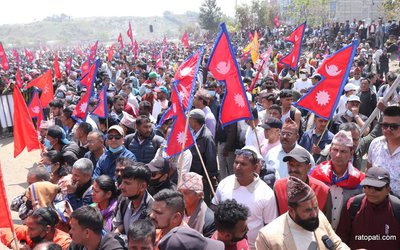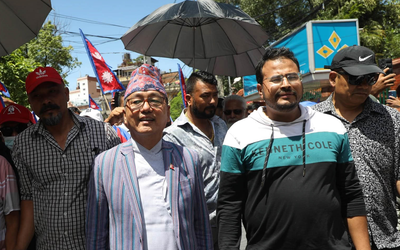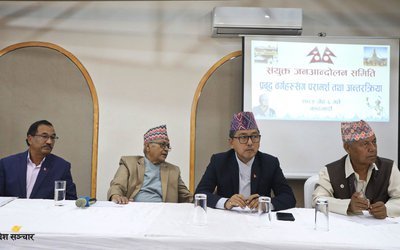More on Politics



The 10th Session of the Parliament has been prorogued recently. The Parliamentary task comprises legislation and check on the government. It is an important aspect of the Constituent Assembly of Nepal in addition to the CA task of constitution writing.
Two things are discussed in this article. The first is about the business performed during the 10th Session of the Parliament and the second one is the outcomes of this Session.
Under the legislative task, the 10th session started on May 02, 2011 and ended on February 21, 2012. The session spent 293 days and holding 99 meetings in total. The actual time spent in the business was 183 hours throughout the Session. Including the Budget, only 15 of 63 Bills have been passed and 7 of 15 different international Treaties and Conventions have been ratified in this period. Among the 63 Bills, 18 were newly submitted and 43 were passed on from previous sessions. Likewise among the 15 treaties 7 were newly submitted and 8 came from previous sessions.
Likewise, under the check of government function, seven standing committees of the Parliament are undertaking their working areas with different portfolios of the Government and Constitutional Bodies as per the Parliamentary rules and procedures. These committees play the oversight role in the tasks performed by the Government and its portfolios and various entities and make it responsible to its tasks. These committees direct the Government and its entities to obey the laws or regulations if they are violated. If the law seems itself not effective or defective, the Government is advised to bring new or amendment Bills as required.
These committees need more time as they not only hold their meetings but also visit fields to observe special cases. They prepare their annual reports and submit to the House. The House also forms, from time to time, parliamentary special committee as well as resolution monitoring committees as required. For example a 19-member special committee was formed for monitoring the execution of Lumbini Development Master Plan brought by Prof. Tange. It had held 4 meetings but when the Government formed another committee parallel to the Master Plan then it was paralyzed. So, a lot of works have been taking place through Parliamentary Committees and they are consuming a lot of time as well.
If we analyze the facts and figures enumerated above, the average time spent only in the House per day is thirty seven minutes and supposing an 8-hour work day, in the 10 months, the actual work was of approximately 23 days. If we suppose again the same period of time spent in committees' works, that becomes 46 days.
This is the only session in the parliamentary history that has taken place for the longest time in Nepal. This compares with the session of the re-established House of Representatives after the Popular Movement of 2006. However, that session had taken place for 263 days, 110 meetings were held, the total time spent was 300 hours and the total number of passed Bills was 38 except Budgetary Bills.
Now, 48 Bills and 8 Treaties are pending in the Secretariat and these Bills and Treaties are 1 year to 3 years old. Due to not passing some important Bills related to money laundering, our country was about to be blacklisted. Luckily, however, that did not happen.
Behind the less than smooth conduct of the parliamentary business are many causes. Six scheduled sittings were postponed issuing notice due to various obstructions created by the opposition demanding settlement of various issues they had raised. Likewise, nine sittings were futile because of lack of the quorum and the Speaker had to shift the scheduled agendas for other days. Although the total number of incumbent MPs is now 595, during the 10th Session, it was 596 and needed 149 members for the quorum but it could not be so. When such types of problems occurred from time to time the Speaker issued the ruling on 24th December 2011 that it was a serious matter that the House businesse was not proceeding in the absence of the quorum. He also drew attention of Government and Parliamentarians towards the situation.
The responsibilities of MPs, as per the House Rules are; to obey the House Rules, to behave according to social norms and values, to regularly participate in parliamentary business and voting, to stand always for public issues and not to take part in the issues of their vested interests, not to disclose and misuse the secrecy associated with their position. To disobey these provisions, norms and values is to escape from their responsibilities
As per the parliamentary convention, normally the Budget Session takes place from May or June to September or October and the Winter Session, which is known as Bill's Session, takes place for the remaining period of a year. But, this unnecessary prolonged Budget Session has also overlapped the time of the Bill Session.
In conclusion, however, a lot of work has taken place towards controlling the governmental tasks, although only 15 Bills of 63, including the Budget, have been passed at the legislative Sector. Similarly only 7 Treaties of 15 have been passed. Now, 48 Bills and 8 Treaties are pending which is 2/3 part of responsibility that not completed by the 10th Session. So, the outcome is less than satisfactory. Not only the common people but also the Leaders from ruling as well as opposition Parties have acknowledged the ineffectiveness of the Session and its unnecessarily prolonged time. Charges and countercharges about who was responsible does not help make the bygone session any better, but they should be a lesson for the future.



